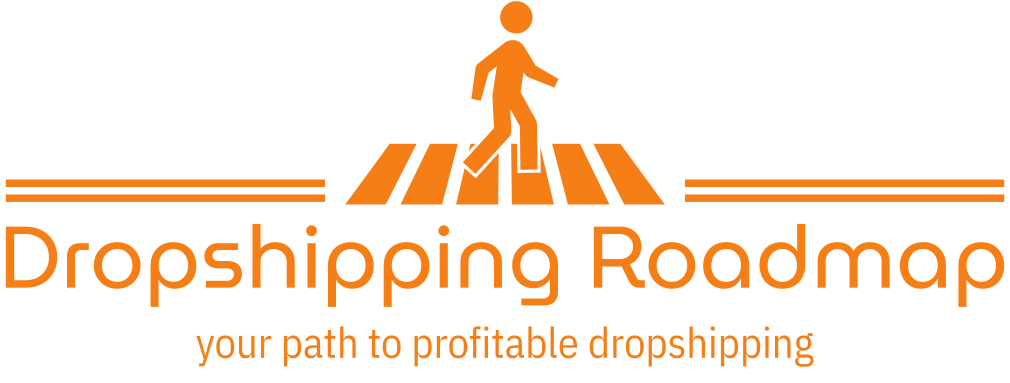Online peer-to-peer (P2P) sales between regular internet users, also known as Consumer-to-Consumer (C2C) e-commerce, have exploded in popularity over the last decade.
With the rise of sites like eBay, Etsy, Facebook Marketplace, and more, consumers have more options than ever to sell new or used goods directly to other consumers all over the world.
But with so many C2C platforms and models available now, how do you choose which one is right for your needs as a seller?
In this post “What Kind Of E-Commerce Platform Is Best Suited To Support C2C Transactions”, we’ll compare the pros and cons of three major C2C e-commerce options – marketplace platforms, open source platforms, and hybrid models to help you determine the best fit.
Let’s get started.

Article Contents
- 1 The Top 5 C2C E-Commerce Platforms That’s Best Suited To Support C2C Transactions
- 2 Key Takeaways: What Kind Of E-Commerce Platform Is Best Suited To Support C2C Transactions
- 3 Marketplace Platforms Are Purpose-Built for C2C
- 4 Open Source Platforms Offer Flexibility But Less Support
- 5 Hybrid Models Don’t Prioritize C2C
- 6 Key Factors To Evaluate
- 7 Conclusion
- 8 FAQs on What Kind Of E-Commerce Platform Is Best Suited To Support C2C Transactions
The Top 5 C2C E-Commerce Platforms That’s Best Suited To Support C2C Transactions
eBay
- A huge existing audience of buyers for C2C sales
- Robust seller tools for listings, payments, reviews, and customer support
- Mature platform with over 20 years in C2C marketplace space
Etsy
- Focused audience looking for unique handmade, vintage, specialty items
- Strong brand recognition among casual hobbyist sellers
- Integrated support and education for small creative businesses
Facebook Marketplace
- Allows selling to your existing social network
- Low fees and setup friction due to Facebook integration
- Better for occasional sales vs high-volume transactions
Shopify
- Supports customized standalone stores with C2C sales channels
- More suitable for established brands vs new sellers
- Subscription fees on top of transaction fees
WordPress + WooCommerce
- Open-source software allows full customization
- Requires building your own audience and marketing
- Higher skill and effort to set but lower fees
The combination of built-in audience and robust C2C seller tools make eBay and Etsy stand out as purpose-built marketplace platforms for peer-to-peer sales. Shopify and DIY options like WordPress can work but require more heavy lifting.
Key Takeaways: What Kind Of E-Commerce Platform Is Best Suited To Support C2C Transactions
• Marketplace platforms like eBay and Etsy optimize for C2C with huge built-in audience reach and robust tools for sellers.
• DIY open source platforms like WordPress + WooCommerce allow full customization and control but require significantly more effort to attract buyers and support C2C transactions.
• Hybrid models like Shopify enable some C2C selling features but are better suited for established brands rather than individual peer-to-peer sellers.
Marketplace Platforms Are Purpose-Built for C2C
Dedicated C2C marketplace platforms like eBay and Etsy provide the most seamless end-to-end experience for casual sellers looking to reach a wide base of buyers.
These sites have already built up massive audiences of buyers searching for the type of unique, handmade, vintage, or specialty items that individuals are looking to sell.
In addition to the huge audience reach, marketplace platforms also offer tailored tools and services for C2C sellers including:
- Streamlined registration, inventory, and listing management
- Built-in payment processing and security
- Review systems to establish seller reputation
- Resolution systems for disputes and fraud protection
- Options to scale up from hobbyist to professional seller
For anyone looking to dip their toe into casual selling or test out a small side business, the combination of marketplace reach and robust C2C-focused tools make sites like eBay and Etsy natural choices to get started.
These platforms handle much of the heavy lifting so sellers can focus on their products and customers.
Open Source Platforms Offer Flexibility But Less Support
Another option for C2C transactions is using an open-source e-commerce platform such as WordPress paired with a plugin like WooCommerce.
The main advantage here is the ability to fully customize and control your online storefront without relying on a third-party marketplace.
However, the trade-off is that these DIY platforms require significantly more upfront effort and technical skill to get up and running.
You’ll need to handle all the marketing yourself to drive traffic and build an audience of buyers. There is also less protection and fraud prevention built-in for C2C transactions.
For sellers that already have an established brand and audience, the flexibility of managing your own storefront may make sense.
But for casual sellers or hobbyists, the extra work needed to attract buyers and support C2C selling through a DIY platform can be daunting.
Hybrid Models Don’t Prioritize C2C
Some hybrid e-commerce platforms like Shopify offer features to enable C2C sales in addition to traditional B2C merchant stores.
Sellers can activate a Shopify storefront for peer-to-peer transactions through Channels like Facebook alongside main product inventory.
However, Shopify’s core strengths lie in supporting branded stores and differentiated shopping experiences.
So while C2C is possible, Shopify does not optimize for individual peer-to-peer sellers the way dedicated marketplaces like eBay and Etsy do.
For individuals or very small businesses, Shopify may not provide the audience reach, built-in tools, or protections tailored specifically to casual C2C transactions. The added subscription fees can also eat into slim margins for hobby sellers.
Key Factors To Evaluate
When choosing the right C2C e-commerce platform, here are some key factors to consider:
- Existing Audience and Reach: Does the platform already have a critical mass of active buyers searching for the type of items you want to sell? This determines visibility and sales volume potential.
- Seller Tools and Support: Does the platform offer robust tools and services catered to C2C sellers? Look for registration, account management, promotions, shipping, reviews/reputation, payments, security, resolution systems, and options to scale up over time.
- Protections and Fraud Prevention: What safeguards are in place to protect against disputes, fraud, non-payment, etc., and assist sellers if issues arise? Critical for risk management with C2C transactions.
- Ease of Setup and Management: How much effort is required to create listings, manage inventory and orders, handle payments, and track metrics? Aim for simplicity.
- Costs: What are the platform fees and commissions? Are there subscription fees or transaction costs that could cut into margins? Understand the full cost structure.
Conclusion
When evaluating e-commerce platforms for C2C sales, marketplace models purpose-built for peer-to-peer transactions like eBay and Etsy have clear advantages.
Leveraging the audience reach and tailored seller tools/services enables individual sellers to test or start small-scale businesses without massive investment or effort.
Of course, needs and goals vary, so take the time to analyze your specific business model, volume expectations, product types, and budget to choose the right C2C platform for your needs.
Focus on marketplaces, open-source DIY, or hybrid models based on your priorities and resources.
The key is picking a platform that will help you create a helpful, engaging experience for buyers to ultimately grow your C2C sales.
FAQs on What Kind Of E-Commerce Platform Is Best Suited To Support C2C Transactions
Q: What about Amazon and other retail marketplaces for C2C selling?
A: Amazon and other large retail marketplaces are options, but usually better suited for established businesses vs casual/hobby sellers due to things like inventory requirements, fees, and competition against major brands.
Q: Can I sell handmade or vintage items on eBay and Etsy?
A: Yes, both eBay and Etsy are popular platforms for selling handmade, vintage, and specialty items peer-to-peer. Their large buyer bases actively search for these types of unique items.
Q: What are some other examples of niche marketplace platforms for C2C?
A: Some other popular niche C2C marketplaces include Depop for fashion resale, Discogs for music/vinyl, Fight Camp for sporting goods – look for sites that focus on your product type.
Q: Do I need a business entity to sell on C2C platforms?
A: Most major C2C platforms allow you to register and sell items as an individual without formally creating a business entity first. Requirements vary by site, so check policies.
Q: Can I use a free open-source platform like Magento instead of paying for Shopify?
A: You can, but will need the technical skills to build and manage it yourself. Shopify is popular because it handles setup/management natively.
Q: What sales volume makes migrating from C2C to my own storefront worthwhile?
A: There’s no set threshold, but factors like consistent sales history, established brand, and resources to drive traffic & marketing support graduating from C2C to a standalone store.
Closing out the article What Kind Of E-Commerce Platform Is Best Suited To Support C2C Transactions. I hope it brought you satisfaction. Thanks for your time.



